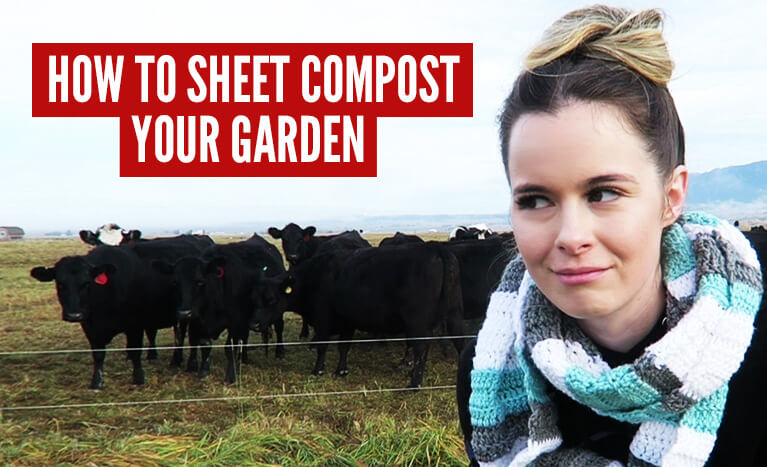If you follow my social media, you know I just moved from a big city to a beautiful little homestead—one I’ve always dreamt of, and now I'm working hard to make it more “Gubba.”
One of my top tier TO-DOs is to build and maintain a large garden. Self-sufficiency in the garden is a wonderful way to provide food for myself and family. Luckily, this little homestead came with a small greenhouse and four raised garden beds.
The garden beds were an absolute mess: gargantuan weeds towering over me, random tools scattered about, hoses tangled like spaghetti. Watch me cleaning up the garden beds in this vlog.
I spent three long days cleaning the first bed, but I'm happy it's ready! Getting a jump start now will help tremendously—I won’t need to weed and clean much come spring! Weeding isn’t the only prep required; the beds need a protective cover of leaves (or straw) through winter! If they aren’t protected like this, they will deteriorate from wind and other weather elements. My soil is especially fertile and teaming to the brim with worms, so I DEFINITELY must protect these delicate beds.
I planted garlic for the first time ever. Watch it HERE. After planting the garlic, I spread leaves across the surface of the beds. These will compost in place, providing valuable nutrients to the soil, so they serve a dual purpose: protection and nutrition! Since this is my first ever garden bed prep, I did lots of research to discover these effective methods.
How should I prep my garden for the winter?
The best method is to (1) weed the garden, (2) top the soil with manure to compost over winter, and cover it with leaves! The manure and leaves break down, producing quality nutrients for the soil.
Why add cow manure to a garden bed?
Manure decomposes slowly to improve soil texture and add nutrients. Add this manure after harvesting all the vegetables, or three weeks before you plant new vegetables in the garden.
Cover your garden with leaves or straw that hasn’t been treated with chemicals or pesticides; otherwise, as the cover breaks down, chemicals seep into the soil. You can always buy chemical-laced produce at the store if you must consume toxins!
Prepping the garden for spring is simple and beneficial. Spring will be here faster than we expect, and with the prep done beforehand, we can just walk out and start producing!

